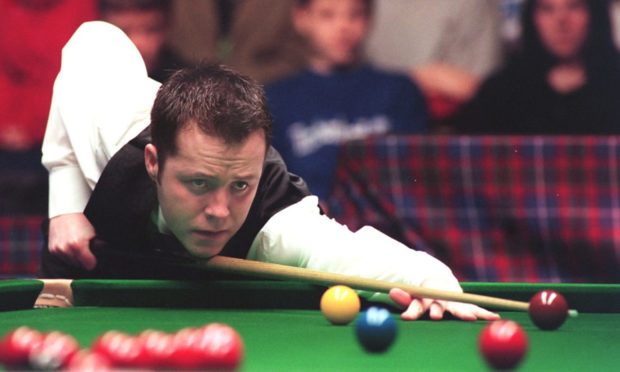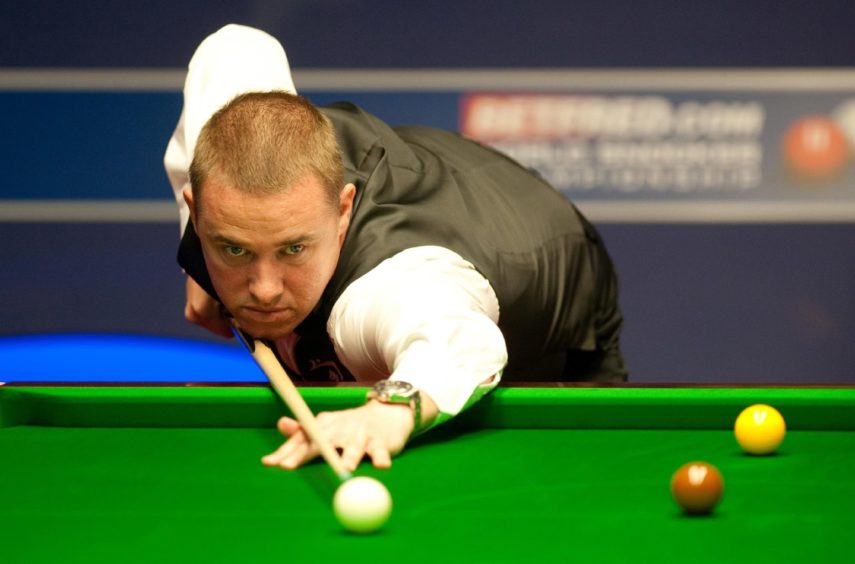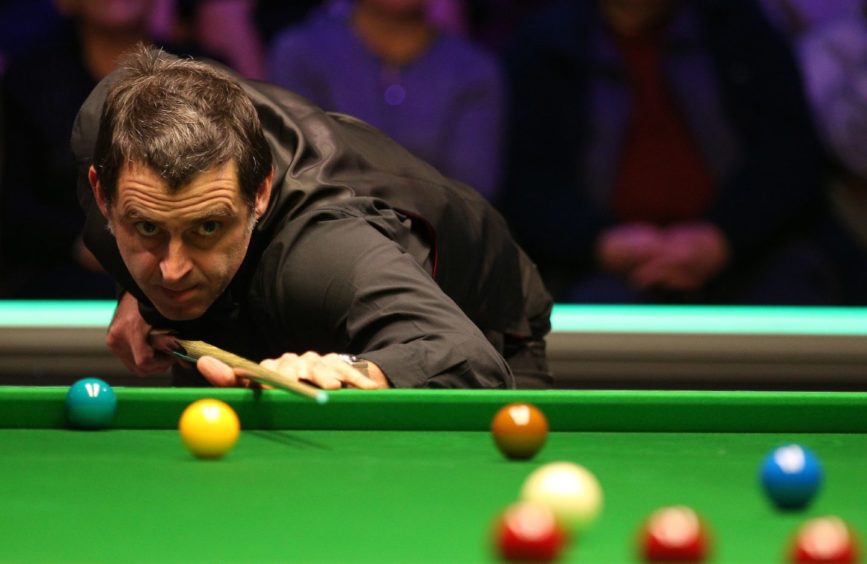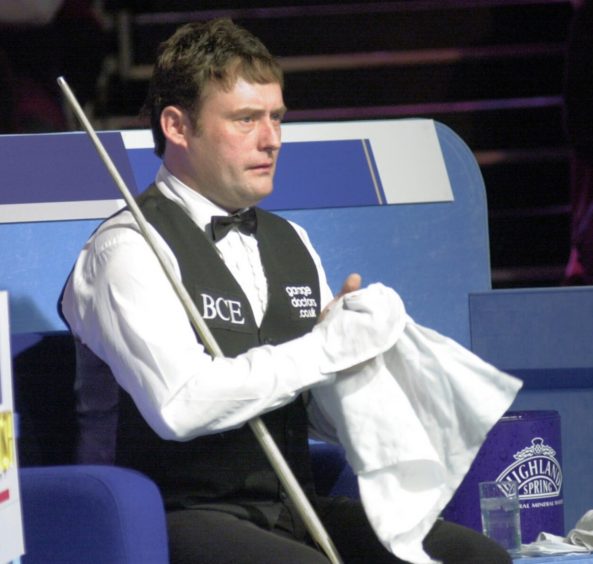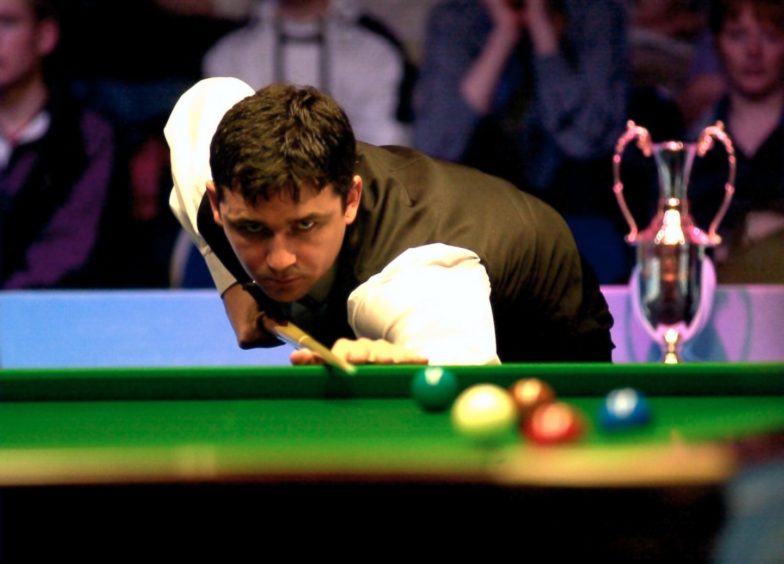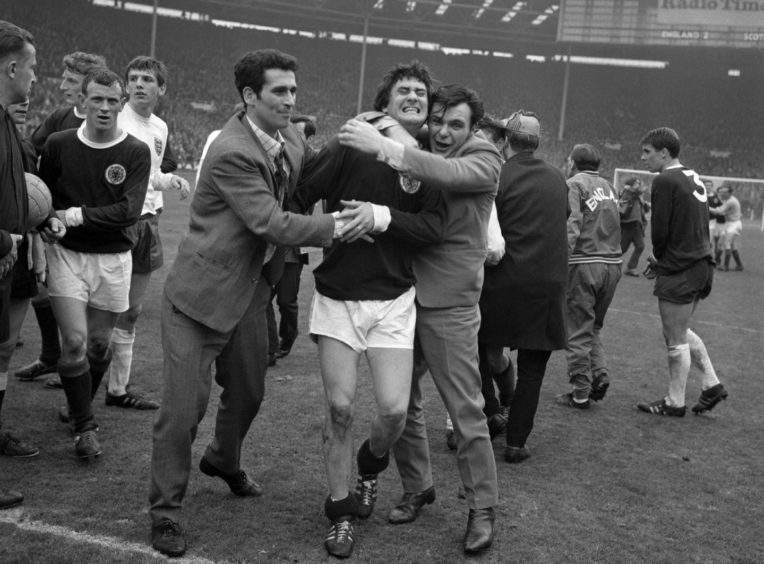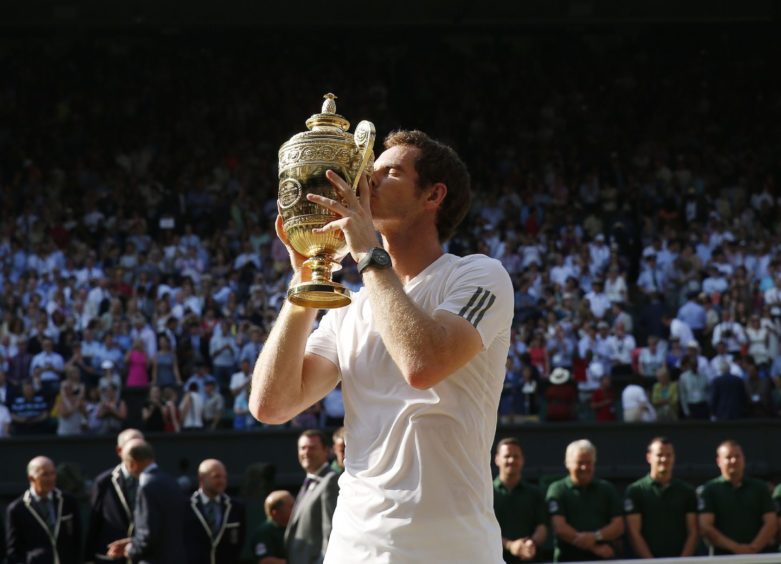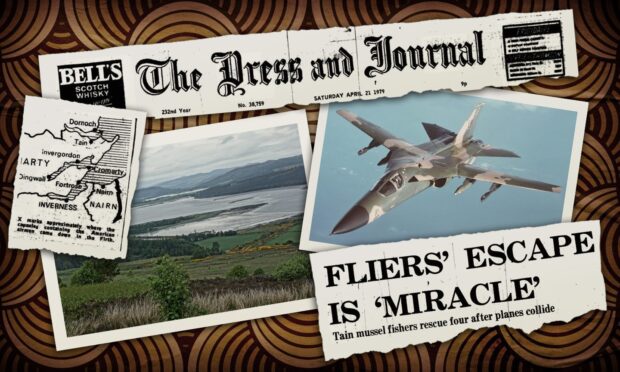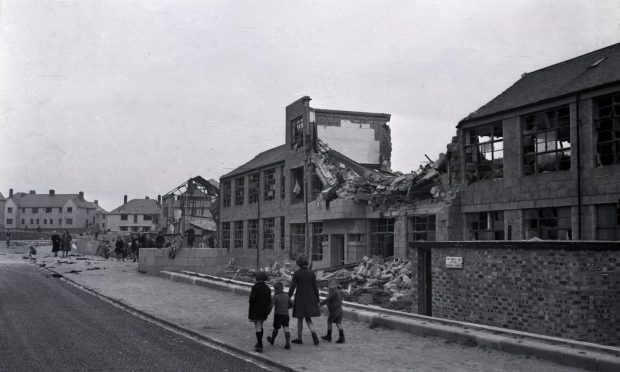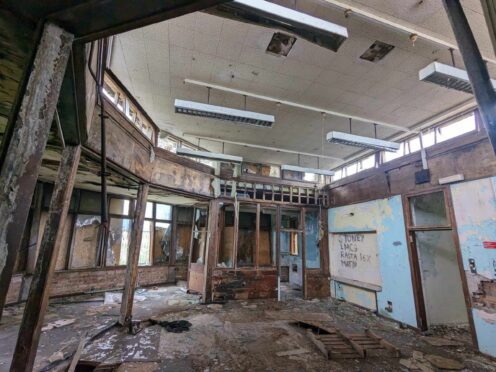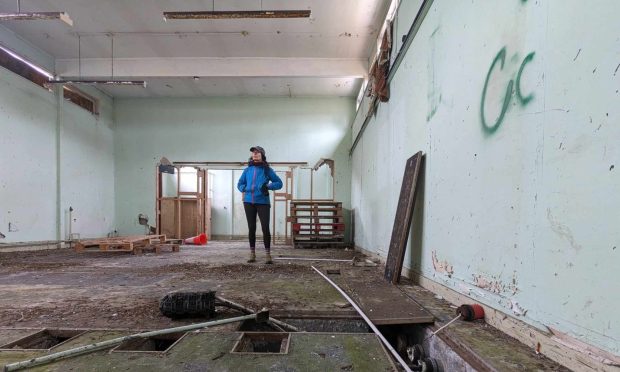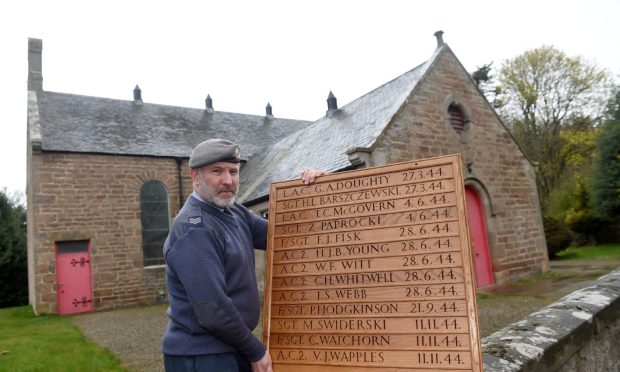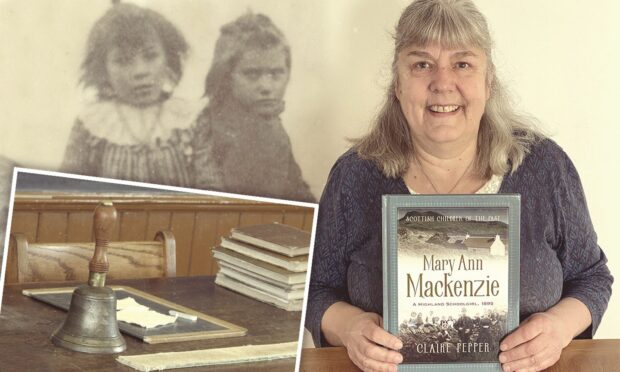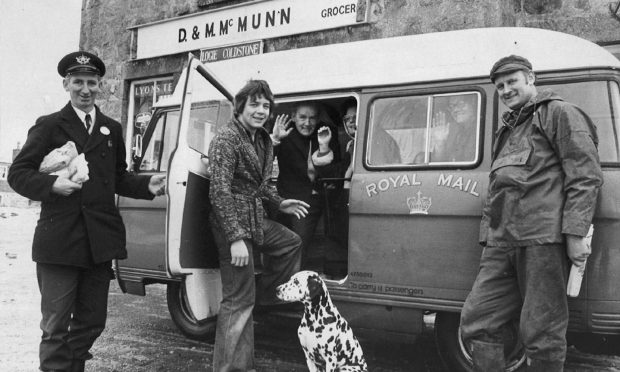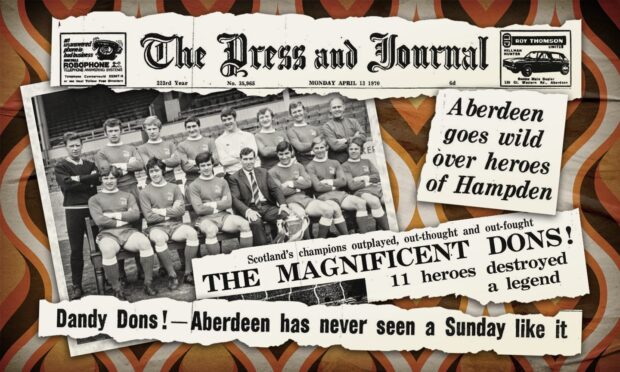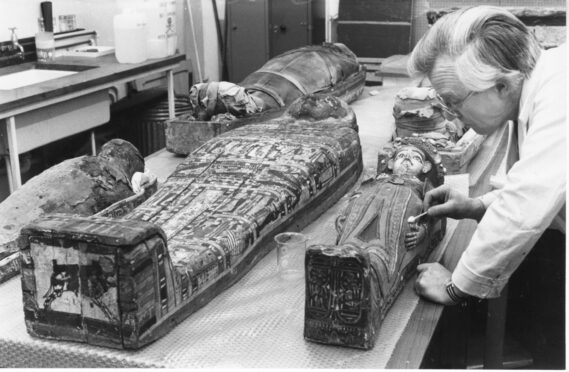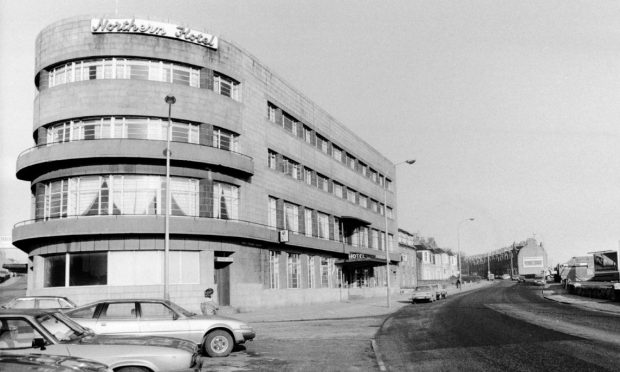Some people believe that snooker has gone to pot in recent years, yet there is always an upsurge in interest whenever the World Championship looms at the cherished Crucible Theatre.
Scots have been at the forefront of the game for many years, and the likes of Stephen Hendry, John Higgins and Graeme Dott have lifted the global crown on a dozen occasions between them since 1990 when the baby-faced Hendry, still just 21, served notice of his clinical mastery with an 18-12 overture of his own composition against Jimmy White: a man who has grown to fear this opponent and is still losing to him three decades later.
Times have changed, with a new generation of competitors, including a rising number of Asian participants at the highest level.
But all the old guard, including the serried ranks of the aforementioned Scots and Ronnie O’Sullivan, Ken Doherty, Mark Williams, Peter Ebdon, Mark Selby and Steve Davis, were among the elite players who travelled to Aberdeen to lock horns in the Scottish Open between 1997 and 2003.
The tournament, initially sponsored by Highland Spring, then Imperial Tobacco – something which is no longer permitted today – was staged at the old Aberdeen Exhibition and Conference Centre, where large crowds of snooker-loopy home supporters thronged to witness the best in the business trade breaks and indulge in screws, kisses and quickfire thrills.
And, once again, that man Hendry set the standard for the rest to follow.
An underrated genius in Scotland’s grand scheme?
He may have gained a reputation as a metronomic performer, better at dismantling rivals than serving up spellbinding entertainment for the viewing public, but there is a valid argument that Hendry is among his country’s greatest-ever sporting stars, not just in terms of his achievements, but for his dedication, commitment and sustained brilliance.
In 1997, matched against Tony Drago at the AECC, he didn’t hang around. Instead, in the space of a few hours, while his Maltese opponent spent most of the proceedings in his chair, Hendry powered to a 9-1 triumph in the same year he won the BBC Scotland Sports Personality award for a second time.
I remember visiting him at the club where he cue-cue-cued in Stirling and marvelling at his single-minded ability to keep practicing as if his life depended on it. Even then, he was capable of droll remarks and humorous observations which supporters rarely witnessed when he was around the green baize. And he was forthright in his opinions that snooker needed to go down the same route as golf and develop a truly international circuit.
I went away thinking that he would have made a perfect vampire: excelling in the dark, permanently working out ways to bewitch and bewilder his adversaries and with a cold-blooded approach to any challenges.
Yet, within the space of 12 months, Aberdeen was lapping up a new kid with the moniker of The Rocket and a stack of pyrotechnics at his disposal.
Breaking with tradition and dismantling the field
Everybody recognised Ronnie O’Sullivan’s potential for greatness from the moment he turned professional in the mid-1990s.
I first clapped eyes on him in 1992 when he was a 16-year-old with a luminous talent at Blackpool’s Norbreck Castle Hotel and it was patently clear he was an idiosyncratic character, flitting from subject to subject and straying down cul-de-sacs of vulnerability without worrying about the consequences.
Elsewhere on the premises, there were tea dances, cream florins and palm court orchestras. In O’Sullivan’s realm, he seemed dedicated, determined and driven by a relentless desire to dazzle in the spotlight.
I wasn’t told until after our chat – which had been set up by an intermediary, snooker writer Terry Smith – that his father, Ronnie, Snr, was in prison, and the youngster was inwardly churning up, his heart on speed dial.
But, if he was occasionally plagued by demons, on and off the circuit, he still had the capacity to enthral crowds with a joie de vivre and ability to make the most tricky and treacherous shots seem like simplicity itself.
Nothing has changed in the intervening period. When he launches the pursuit of a sixth world title next weekend, nobody should dismiss his chances. After all, even in unprecedented times, he can blaze his own trail.
He arrived in Aberdeen in 1998, just a year after creating TV history with an astonishing maximum break of 147 at the World Championships against Mick Price – and he polished it all off in just five minutes and 20 seconds.
He had to be more meticulous when he progressed to the final at the AECC, where he met the remorseless little “Wizard of Wishaw” John Higgins.
But, following an intriguing match full of contrasting styles, where the Scot was always clinging on to O’Sullivan’s coat-tails, he had nothing left to give. The English maestro won 9-5 and then, two years later in 2000, was in imperious mood as he thrashed Mark Williams 9-1 in the final.
He can sometimes irritate pundits and the public alike. Yet when this fellow hits his strides and finds his rhythm and rattles round the table like there is no tomorrow, it is one of the most resplendent sights anywhere in sport.
Aberdeen audiences lapped up the early events
The north-east showed a positive response to the Scottish Open being held regularly in Aberdeen. Or at least they did during the first four years.
The trouble was that the tournament organisers were unable to whip up the same giddy expectations year after year and particularly given the lack of memorable matches when it came to the showpiece final.
As we have highlighted, there were too many denouements which turned into one-sided anti-climaxes. And although Peter Ebdon and Ken Doherty bucked the trend in 2001 with a nerve-shredding meeting between another two world champions, which ebbed and flowed before the former defeated the Irishman 9-7, it was pretty obvious that the writing was on the wall.
New faces, new winners, but few thrills
The last two years of the Scottish Open’s flirtation with the Granite City encapsulated why the game’s officials decided to relocate elsewhere.
In 2o002, the final was between Stephen Lee and David Gray. To be polite, it was far from a classic, nor did it gain many column inches in a year when there was a World Cup and a Commonwealth Games on the schedule.
Lee, a controversial figure and charisma-free zone, was eventually suspended from WSA competition in 2012 on serious match-fixing charges. He was subsequently found guilty by an independent tribunal in September 2013 of influencing the outcome of seven matches in 2008 and 2009.
He duly received a twelve-year ban backdated to the start of his suspension and which will run until October 12 2024, the day of his 50th birthday. In short, he will not be troubling the Crucible for the rest of his career unless he decides he wants to watch one of their theatre productions.
In fairness, there was nothing suspicious about the fashion in which he demolished Gray 9-2, but there was nothing to stifle the yawns either.
And although the losing player produced a remarkable transformation the following season when Gray won the last event to take place at the AECC – with a 9-7 success over Mark Selby – that proved the end of the road.
In 2004, the venue was switched to the SECC in Glasgow, where Jimmy White squeaked home against the late Paul Hunter in a thrilling showdown which went to the 16th frame and featured a range of spectacular exchanges.
And that was the end of the tournament until 2012.
How highly does Hendry rate in Scottish sport?
Stephen Hendry failed in his bid to qualify for this year’s World Championship, but there’s no doubting his place in the history books.
For more than a decade, he was the greatest performer in his domain, and possibly the finest who has ever graced the green baize.
Indeed, there are grounds for claiming that he is among the best sporting talents that his country has ever produced, given his seven global titles and complete dominance in the 1990s.
The litany of statistics – the 776 century breaks, 36 ranking tournament victories and 11 competitive 147 “maximums” – simply reinforce the pedigree of the man who was born in South Queensferry in 1969, just 10 days after Michael Schumacher, who also won seven world championships but did so with considerably more controversy and dirty tricks than Hendry ever did.
In anyone’s terms, his achievements are exemplary. Should we stand him next to a Jimmy Johnstone or Jim Baxter and conclude that he lacked that duo’s innate joie de vivre? Or might Hendry’s dominance of his vocation have happened before snooker was transformed into a truly international pastime?
I can already envisage the protests from the petrolheads, who will fight the corner of Jackie Stewart and Jim Clark, whilst boxing devotees will point to Ken Buchanan and Olympic lovers will cry hurrah for the likes of Allan Wells and David Wilkie, Eric Liddell and Sir Chris Hoy.
Then, of course, there is Andy Murray: my own personal No 1.
But, irrespective of the potent gifts of all these coruscating characters, none of them grabbed their sport by the scruff of the neck and squeezed the life out of would-be challengers with more intensity – and over such a prolonged period – as Hendry in his pomp.
He won his first major tournament in 1987 when he defeated Dennis Taylor and duly embarked on a rampant destruction of anybody who stood in his path until the dawn of the new millennium.
